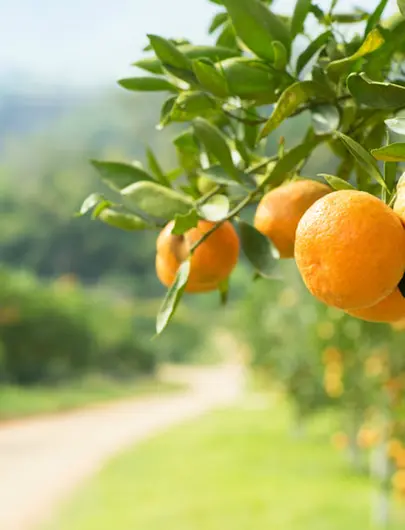Ask most people about natural sources of vitamin C, and chances are oranges will spring to their mind first. Well, move over, oranges – there’s a vitamin superstar that’s been flying under the radar for a while now, and it’s finally having a moment.
Introducing: the Kakadu plum. Also known as the Gubinge, Billygoat Plum and Murunga, the Kakadu plum grows along the Top End of Northern Australia. It’s biggest claim to fame? It’s the world’s richest natural source of vitamin C. Yes, really! It contains a whopping 3000mg of vitamin C per 100g – making it 50 times as concentrated as the humble orange.
The health benefits of the Kakadu plum
The Indigenous people of Arnhem Land have been eating Kakadu plums for thousands of years, and they were definitely on to something. Thanks to their potent vitamin C content, they’re brilliant at strengthening the immune system, stimulating collagen and keeping bones and teeth nice and healthy. Plus, the level of vitamin C in the Kakadu plum makes it a powerful antioxidant – five times as powerful as the blueberry, in fact! Antioxidants can help to combat free radicals and premature ageing, as well as prevent or slow down the development of heart disease and Alzheimer’s.
Impressive, right? But that’s not all.Vitamin C aside, the Kakadu plum is a great vegetarian source of iron. It also has anti-bacterial, anti-fungal, antiseptic and anti-inflammatory properties. It is for these reasons that the Indigenous people often used its sap for medicinal purposes, and its bark to treat rashes and infections.
So, what are the uses of Kakadu plums?
There are two ways you can reap the benefits of this homegrown superfood: by eating it, or by applying it to your skin. While the fruit can be stewed, freeze dried and eaten on its own, it’s quite sour, so we recommend trying it mixed with other goodies.
Here at GMB HQ, we’ve discovered The Health Food Guys’ Kakadu Plum and Lemon Bites.. they are seriously addictive. Along with the antioxidant-rich Kakadu plum, they contain yummy extras like organic dates, brown rice protein, pepitas, coconut and chia seeds. Plus, they’re vegan, gluten-, dairy-, and lactose-free, making them the perfect snack.
Thanks to its antioxidant and anti-inflammatory qualities, the Kakadu plum is a nifty skincare ingredient, and it’s been popping up in more and more products lately, especially serums and masks. It can help to fade dark spots, firm skin, reduce redness and boost that glow we all know and love.
There you have it: the lowdown on the Kakadu plum. It packs a powerful punch for such a small fruit, and we have to admit, it’s pretty cool that it can only be found Down Under. #humblebrag
Did you know about the benefits and uses of the Kakadu plum? Are you keen to try it?

